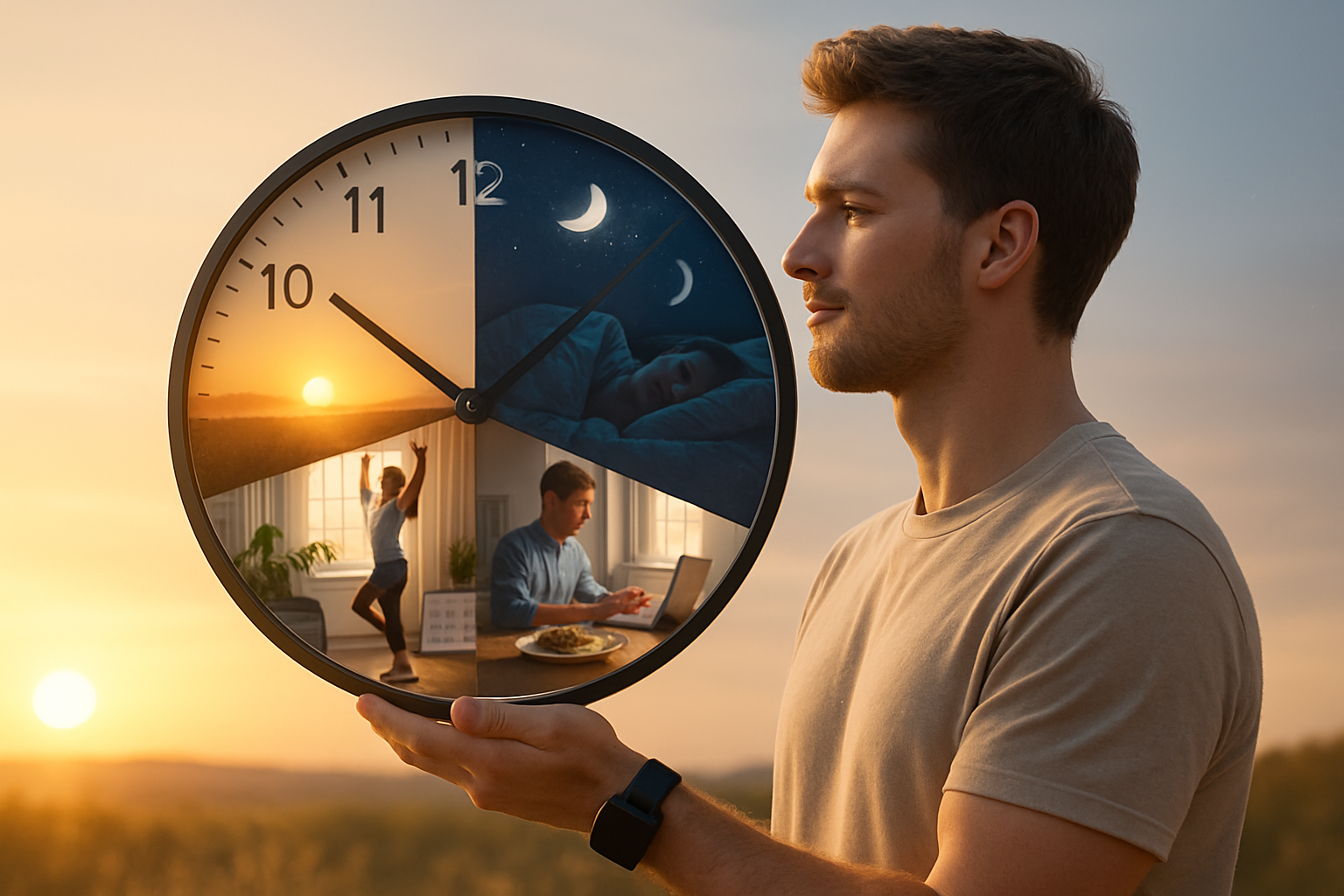Unveiling the Potential of Chronobiology in Personalized Health
Imagine a world where your daily schedule, from meal times to workout sessions, is perfectly synchronized with your body's internal rhythms. This isn't science fiction—it's the promise of chronobiology, a field revolutionizing our approach to health and wellness. But what exactly is chronobiology, and how can it transform your life?

The discovery of circadian rhythms dates back to the 18th century when the astronomer Jean-Jacques d’Ortous de Mairan observed that mimosa plants continued to open and close their leaves at regular intervals, even in constant darkness. This groundbreaking observation laid the foundation for modern chronobiology, which has since expanded to encompass a wide range of biological timekeepers in plants, animals, and humans.
The Master Clock and Peripheral Clocks
At the heart of our chronobiological system lies the suprachiasmatic nucleus (SCN), often referred to as the master clock. Located in the hypothalamus, the SCN receives light signals from the eyes and coordinates the timing of various bodily functions. However, recent research has revealed that nearly every organ and tissue in our body contains its own peripheral clock, which can be influenced by factors such as food intake and physical activity.
These peripheral clocks work in concert with the master clock to optimize organ function and maintain overall health. For instance, the liver’s clock regulates metabolism and detoxification processes, while the skin’s clock influences cell renewal and protection against UV radiation.
Chronotypes: Understanding Your Personal Rhythm
One of the most intriguing aspects of chronobiology is the concept of chronotypes—individual differences in circadian rhythms that influence our natural sleep-wake cycles and periods of peak performance. Traditionally, people have been categorized as either “larks” (early risers) or “owls” (night owls), but recent research suggests a more nuanced spectrum of chronotypes.
Understanding your chronotype can help you optimize your daily schedule for improved productivity, health, and well-being. For example, night owls may benefit from later work start times, while early birds might find they’re most creative in the morning hours.
Chronomedicine: Timing Treatments for Maximum Effect
The field of chronomedicine applies chronobiological principles to medical treatments, recognizing that the timing of interventions can significantly impact their efficacy. This approach has shown promise in various areas, including cancer treatment, where the timing of chemotherapy administration can influence both its effectiveness and side effects.
Chronomedicine also extends to the realm of pharmacology, where researchers are exploring how the timing of medication intake can optimize its benefits while minimizing adverse effects. For instance, studies have shown that taking certain blood pressure medications at night rather than in the morning can lead to better blood pressure control and reduced risk of cardiovascular events.
Chrononutrition: Eating in Sync with Your Body Clock
The concept of chrononutrition suggests that when we eat is just as important as what we eat. Our body’s metabolic processes follow circadian rhythms, with insulin sensitivity and nutrient absorption varying throughout the day. By aligning our eating patterns with these natural rhythms, we may be able to improve metabolic health, weight management, and overall well-being.
Recent studies have shown that consuming larger meals earlier in the day and limiting late-night eating can lead to improved weight loss and metabolic outcomes. Additionally, research is exploring how specific nutrients might influence our circadian clocks, opening up new possibilities for dietary interventions that can help regulate our internal rhythms.
Chronobiology in Action: Practical Applications
-
Optimize your sleep schedule by maintaining consistent sleep and wake times, even on weekends
-
Expose yourself to natural light in the morning to help regulate your circadian rhythm
-
Time your meals to align with your body’s natural metabolic peaks, typically earlier in the day
-
Consider your chronotype when scheduling important tasks or meetings for peak performance
-
Be mindful of blue light exposure from electronic devices in the evening, as it can disrupt sleep patterns
-
Explore the concept of “social jet lag” and try to minimize discrepancies between your work and free day schedules
-
Consult with healthcare providers about the optimal timing for medication intake based on chronobiological principles
As we continue to unravel the complexities of our internal clocks, the potential for personalized, chronobiology-based health interventions grows ever more promising. By aligning our lifestyles with our natural biological rhythms, we may unlock new levels of health, productivity, and well-being. The future of health and wellness lies not just in what we do, but when we do it—a testament to the power of timing in optimizing our lives.






